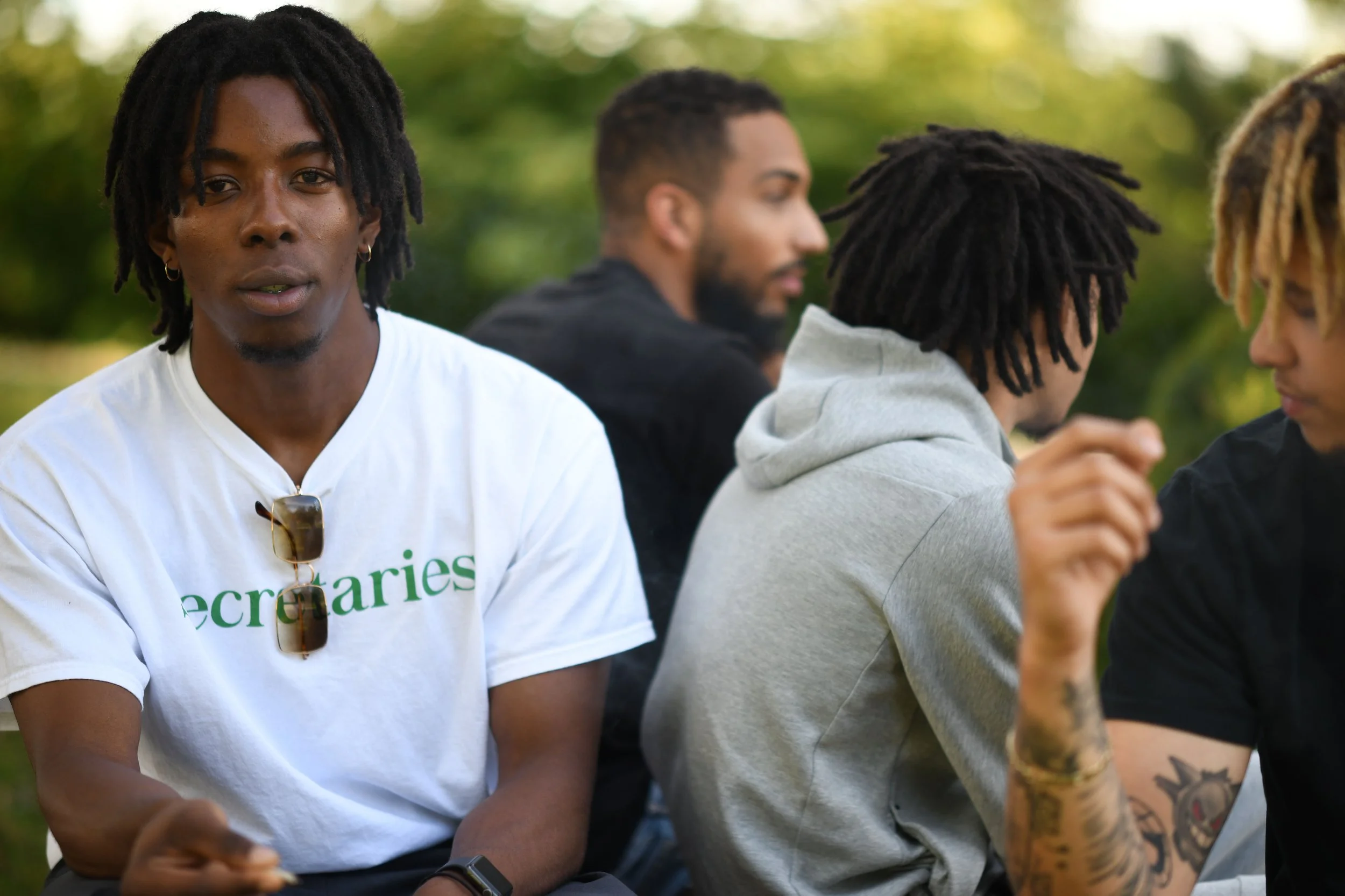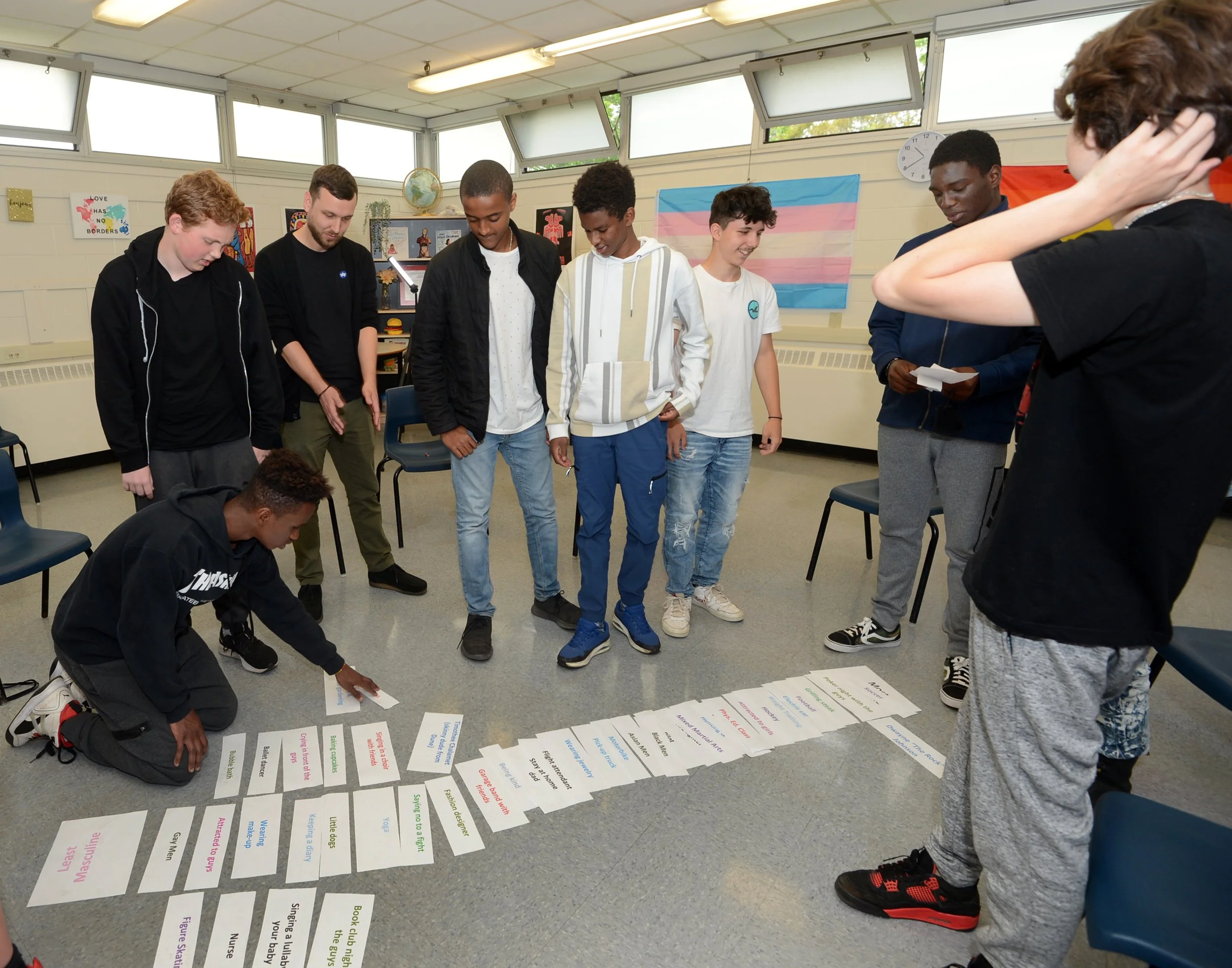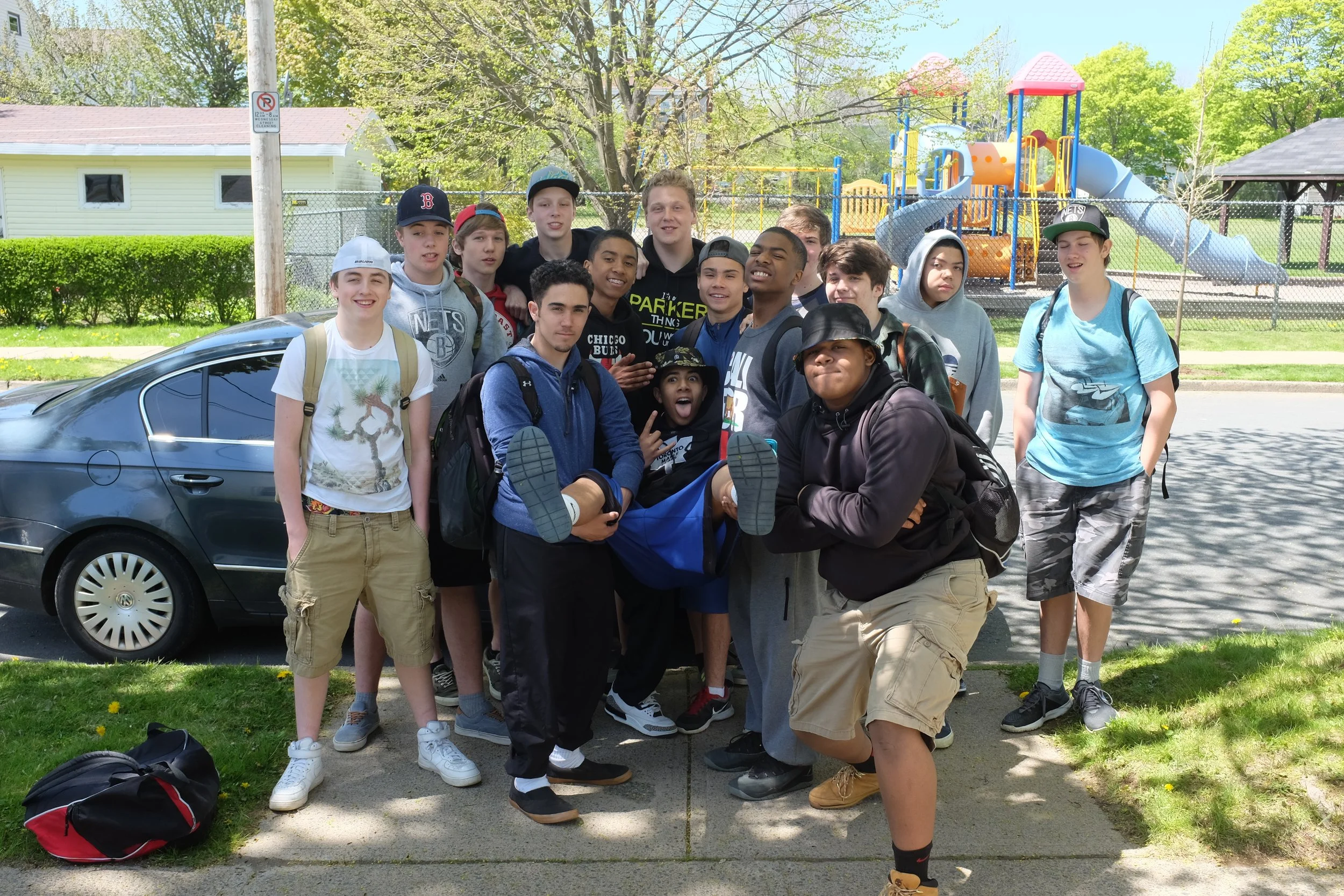GuysWork is a school-based program where young men examine how traditional masculinity norms can impact their health and the health of their peers.
Traditional masculinity norms are the pressures guys feel about what kind of man society expects them to be.
When those pressures and expectations guide their behaviour there are poor health outcomes.
When guys feel more comfortable and supported presenting a version of masculinity that is their own, they are almost always healthier.
A challenge in the
health care system
GuysWork started as a response to a challenge facing the Nova Scotia health care system.
The province’s school-based youth health centres – about 50 of them - were evaluated and proven effective at helping youth improve their health, but few guys were accessing them.
Creating a prototype
A Halifax school was the site of an informal pilot project to see if a health education class for young men might help disrupt a traditional masculinity norm telling guys asking for help is a sign of weakness.
The response was positive with 20 percent of the guys stepping up to ask for help for a variety of health issues. A more formal prototype was developed in partnership with health and education experts in Nova Scotia, as well as feedback from teachers and youth.
Listening, evaluating,
evolving, and building
capacity
What surfaced in subsequent evaluations was
an overwhelming level of comfort in the classes compared to what was found in an all-gender health education class.
The work expanded in 2019 with funding from Nova Scotia’s Standing Together to Prevent Domestic Violence action plan, and subsequent funding allowed the GuysWork creators to develop lessons for young men in grades six through nine.
A different approach
GuysWork sessions look very different from typical health classes, with youth seated in a circle with their facilitators, who help students move through experiences leading to conversation and reflection.
Youth voice is critical to the way lessons evolve and improve. Their responses and wisdom inform new iterations of the sessions. Youth are not just a target audience; they are partners in the progression of GuysWork.
Inclusion
Inclusion through the lens of gender identity was the first concern in the early days of GuysWork, but facilitators have learned there are many reasons why a student may not feel comfortable in a group.
These temporary spaces must be seen through many lenses, including race, ethnicity, culture, physical abilities, sexual identity, neurodiversity, chronic illnesses and injuries and the impacts of the social determinants of health – even hobbies and passions – and GuysWork facilitators are skilled at creating spaces that welcome and celebrate everyone.






